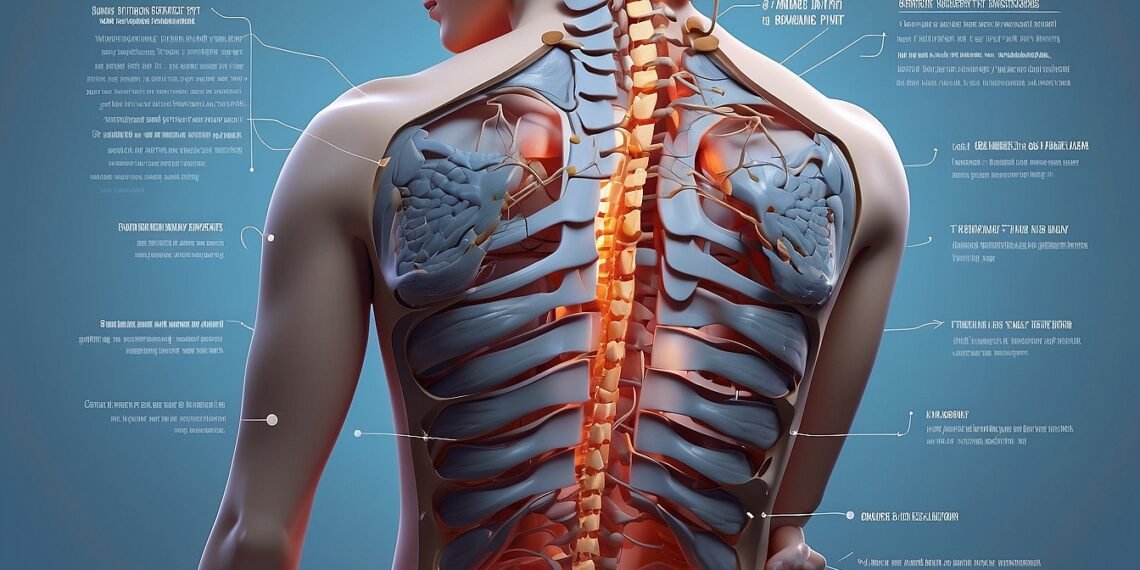Direct and indirect mechanisms: COVID-19 can cause back pain through direct muscle inflammation, increased stress levels, and changes in breathing patterns. This can lead to stiffness, aches, and discomfort.
Treatment options:
- Over-the-counter pain relievers: Medications like ibuprofen or acetaminophen can provide temporary relief.
- Heat therapy: Apply heat to the affected area using hot water bottles, heating pads, or warm compresses. This helps relax muscles and improve blood flow.
- Stretching and gentle exercise: Gentle stretching and movement can help maintain flexibility and reduce pain.
- Improving posture: Avoid slouching and maintain proper spine alignment while sitting, standing, and walking.
- Rest and hydration: Ensure adequate sleep and hydration to support recovery.
Definitions:
- Muscle inflammation: Swelling and irritation of muscle tissues caused by the virus.
- Stress: Psychological response to the body’s fight against the virus.
- Altered breathing patterns: Shallow breathing due to respiratory symptoms, leading to muscle tension.
When to see a doctor:
- If back pain is severe, persistent, or worsens despite home remedies.
- If accompanied by fever, chills, chest pain, or difficulty breathing.
- If you experience numbness, tingling, weakness, or difficulty controlling bladder or bowel movements.
Additional resources:
- PDF: https://www.mayoclinic.org/symptoms/muscle-pain/basics/definition/sym-20050866
- YouTube video: https://www.youtube.com/watch?v=n8PTnXdsMBw
Remember, consulting a healthcare professional for personalized diagnosis and treatment plan is crucial for optimal recovery.
Follow-up questions about back pain from COVID-19:
Pain specifics:
- How would you describe the pain (sharp, dull, burning, aching)?
- Where is the pain located specifically? Does it radiate anywhere else?
- What is the intensity of the pain on a scale of 1-10?
- When did the pain start? Is it constant or intermittent?
- What makes the pain worse or better?
- Have you experienced any other symptoms besides pain, like fatigue, cough, or shortness of breath?
Relationships:
- Does the pain affect your daily activities or relationships?
- How does the pain impact your work or hobbies?
- Are there any stressful events or changes in your life related to COVID-19 that might be contributing to the pain?
Treatment and management:
- What have you tried so far to relieve the pain?
- Have you taken any medications or used any treatments specifically for COVID-19?
- Are you open to trying physical therapy or other alternative therapies?
- How comfortable are you taking over-the-counter pain medication while recovering from COVID-19?
Other potential causes:
- Did you have any pre-existing back problems before contracting COVID-19?
- Have you recently experienced any injuries to your back?
- Are there any other factors that might be contributing to the pain, such as poor posture, lack of sleep, or dehydration?
Additional questions:
- Has your doctor provided any diagnosis or treatment plan for your back pain?
- Are you concerned about the pain potentially being a long-term effect of COVID-19?
- Do you have any questions or concerns about managing your back pain while recovering from COVID-19?
Remember, providing detailed information to your healthcare professional about your pain is crucial for accurate diagnosis and effective treatment.

